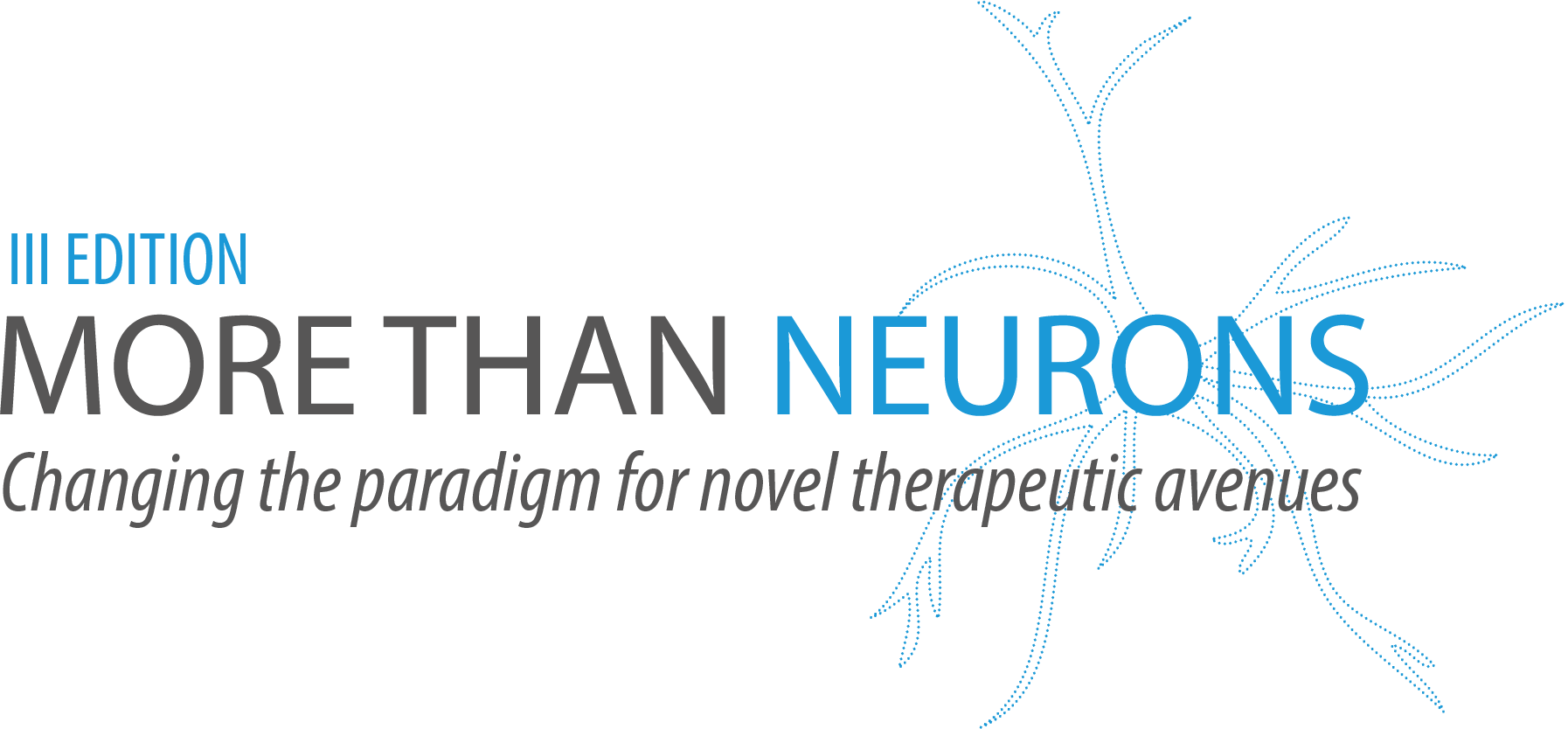
TURIN, 15-17 DECEMBER 2022
Neurological and psychiatric disorders have long been perceived as the exclusive consequence of abnormalities in neurons. Increasing knowledge on newly identified functions of non-neuronal cells together with findings of their abnormalities in a variety of brain pathological states and in ageing now suggest a shift from a neurono-centric to a glial-inclusive viewpoint in neuroscience and in neuropsychopharmacology. After the success of the first two meeting editions, we would like to continue the discussion of recent preclinical and clinical findings implicating the involvement of non-neuronal cells in initiation, progression or protection of several neuropathologies. Our perspective is that therapeutic strategies aimed at improving/correcting not only neuronal but also non-neuronal cell state and functional performance may open new venues for relevant and undertreated brain diseases.
The meeting focuses on any aspect related to non-neuronal cell populations and their interaction with neurons and neural function (in healthy and pathological conditions), including: neural stem cells, astrocytes and microglia, OPC and oligodendrocytes, schwann cells, enteric glia, glia-neuron crosstalk, neuro-glia-vascular interactions, blood brain barrier, choroid plexus and meninges.
Non-neuronal targets for current and future pharmacological interventions (small molecules, ATMP, nutraceuticals) will be discussed and proposed.
The following topics will be taken into consideration:
- Non neuronal cells in neurodegenerative disorders (i.e AD, PD, ALS, HD, stroke)
- Non neuronal cells in neuropsychiatric disorders (i.e depression, anxiety, psychosis, bipolar disorder)
- Immune and inflammatory cells in neurological disorders (i.e multiple sclerosis, NMOSD, epilepsy)
- Neurodevelopmental disorders (i.e autism spectrum disorder, Down syndrome)
- Metabolic disorders (obesity, diabetes)
- Neuromuscular disorders
- Non neuronal cells in chronic pain and peripheral neuropathies
- Neurological sequelae of COVID19 and other infectious diseases
- Brain tumors and metastasis
- Rare and orphan diseases of neural tissues
- Neurological consequences of systemic diseases (i.e. sepsis, gut and liver diseases)
